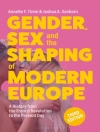Studies of China and Chineseness since the Cultural Revolution Volume 1: Reinterpreting Ideologies and Ideological Reinterpretations
How did the Great Proletarian Cultural Revolution affect everyone’s lives? Why did people re/negotiate their identities to adopt revolutionary roles and duties? How did people, who lived with different self-understandings and social relations, inevitably acquire and practice revolutionary identities, each in their own light?
This book plunges into the contexts of these concerns to seek different relations that reveal the Revolution’s different meanings. Furthermore, this book shows that scholars of the Cultural Revolution encountered emotional and intellectual challenges as they cared about the real people who owned an identity resource that could trigger an imagined thread of solidarity in their minds.
The authors believe that the Revolution’s magnitude and pervasive scope always resulted in individualized engagements that have significant and differing consequences for those struggling in their micro-context. It has impacted a future with unpredictable collective implications in terms of ethnicity, gender, memory, scholarship, or career. The Cultural Revolution is, therefore, an evolving relation beneath the rise of China that will neither fade away nor sanction integrative paths.
Contents:
- Foreword
- Preface
- About the Editors
- Introduction: Who Is Writing the Cultural Revolution? (Chih-yu Shih, Mariko Tanigaki, and Tina S Clemente)
- From Iron Girls to Greedy Girls: Gender Marking Stability and Chaos Before and Aafter the Cultural Revolution (Louise Edwards)
- China’s Minorities in the Post-Cultural Revolution Scholarship: A Case Study of Inner Mongolia (Sharad K Soni)
- Russian Sinology During the USSR–PRC Rivalry, Late Soviet, and Post-Soviet Periods: Trajectories of Evolution (Valentin Golovachev, Ivan Zuenko, and Nikolai Rudenko)
- A Cross-Reflection on Development: Recollecting China, Contemplating the Philippines (Tina S Clemente)
- Hong Kong as a Base for China Watching and the Growth of Byron S J Weng’s Scholarship (Mariko Tanigaki)
- British Media Coverage of the Early Cultural Revolution, 1966–1969 (Aglaia De Angeli)
- Cultural Revolution and the Making of Xi Jinping (Swaran Singh)
- Index
Readership: Academics, policymakers, professionals, undergraduate and graduate students interested in China studies, China’s Cultural Revolution, ethnicity studies, Chinese history, Hong Kong studies, intellectual history, journalism.
Key Features:
- Provides insight in contemporary China caught by the triad of the COVID pandemics, US–China rivalry, and China rising
- Presents a pluriversal style of analysis to abide by neither Euro- nor Sino-centrism
- Traces the unuttered legacies in the nuanced after-streams of the Cultural Revolution without privileging any canonical narratives
- Enables multi-perspective (e.g. gender, ethnicity, diaspora, colony, personality, intellectual growth, and cosmopolitan) and multi-sited (e.g. Russia, Hong Kong, the Philippines, China, the UK, and Mongolia) comparison of the impacts of evolving ideologies












